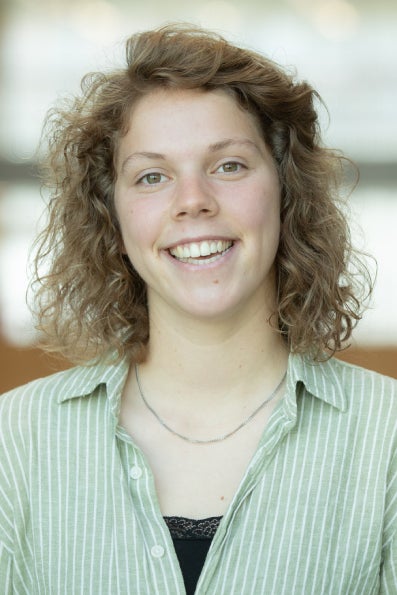After all, how can you teach without students? Or how can you learn without an expert? In education, we are all connected in one way or another, but the felt level of sense of belonging varies from person to person.
Connection is fundamental
The consequences of these differences in level of sense of belonging are significant. Insufficient interaction among students and between students and teachers and staff can lead to a low sense of community, feeling out of place in the program, feelings of loneliness, and consequently, a higher risk of academic drop-out, as argued by Tinto (2012). Conversely, students who feel strongly connected to the program, their teachers, and their peers tend to be more successful during their studies. Thus, connection can be seen as both a prerequisite and a predictor of academic success (Elffers, 2018). We cannot escape the need for connection in education; it is fundamental. But how can we promote connection? How can we ensure that students, teachers, and staff feel connected to each other and to the program? "Students as Partners" provides an answer to this.
Moving beyond classical ideology
'Students as Partners' is a collaboration between students and teachers. By working together, they not only enhance education but also strengthen the connection between each other and between teachers, students, and education itself. At the heart of this collaboration is the relationship between students and their peers and staff and their peers, as well as the relationship between students and staff. If we want to ensure connection among ourselves, it is essential to think beyond classical roles and divisions. This notion aligns very well with the ideology of "Students as Partners," where student-staff partnership goes beyond viewing the student as a consumer and recipient, but where the partnership is seen as a reciprocal process, with the student being seen as an equal partner (Gravett, Kinchin & Winstone 2019). A widely accepted definition of such partnership is as follows:
“A collaborative, reciprocal process through which all participants have the opportunity to contribute equally, although not necessarily in the same ways, to curricular or pedagogical conceptualization, decision-making, implementation, investigation, or analysis" (Cook-Sather, Bovill & Felten 2014, pp. 6-7).
Blog: Connection between students and staff

Valuing students
Partnership encompasses a process, not a product, where student engagement is promoted through collaboration between students and staff. It can be seen as 'a way of,' rather than viewing partnership as the end product. I have experienced this myself. A year and a half ago, I started as a student-staff member at the VU Centre for Teaching & Learning (CTL). I was asked to participate in various meetings as a student. My opinion was sought and valued, while I kept thinking: 'I'm here with all these experts who know what they're talking about, and I'm a third-year undergraduate student in Educational Sciences with no experience...' It took time for me to be confident in the fact that I am able to add value to the team. Only later did I realize that I didn't have to say the same things as my colleagues. In fact, my perspective and opinion were valued because I looked at things from a student's point of view. This confidence in myself and the realization that I didn't have to be like my colleagues grew through the relationship I had with them. They valued me, were interested in who I was, gave me a voice, and most importantly, listened to my voice. A voice I didn't even know I had. Through this form of interaction, I feel connected to my colleagues, to the CTL, and to my studies. Exactly as Tinto (2012) and Elffers (2018) advocate, "Students as Partners" does contribute to connection.
Not 'us' vs 'them,' but 'we'
This connection, the feeling of belonging, ensures that well-being, active engagement, cognitive skills, and academic performance are not compromised. So let's engage in dialogue with students, let's see each other as equal partners with our own qualities and skills, and let's not speak of 'us' and 'them' but of 'we'. In education, there is no 'alone'; we need each other.
The Students as Partners initiative of VU Amsterdam can help you work towards a partnership between students and staff at all levels. We can brainstorm together, offer advice, or provide inspiration. If you need assistance or are interested in the initiative and partnership, feel free to send an email; we can't wait to connect with you and the students!
Do you have any questions or comments?
Feel free to contact Noah Rookmaker via: